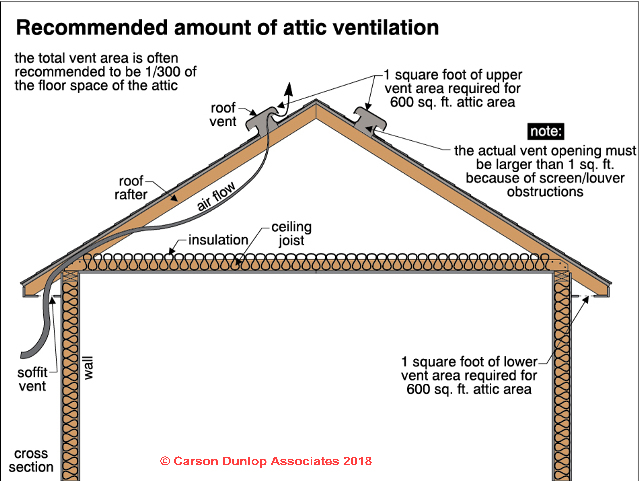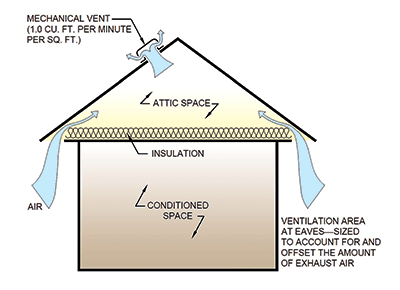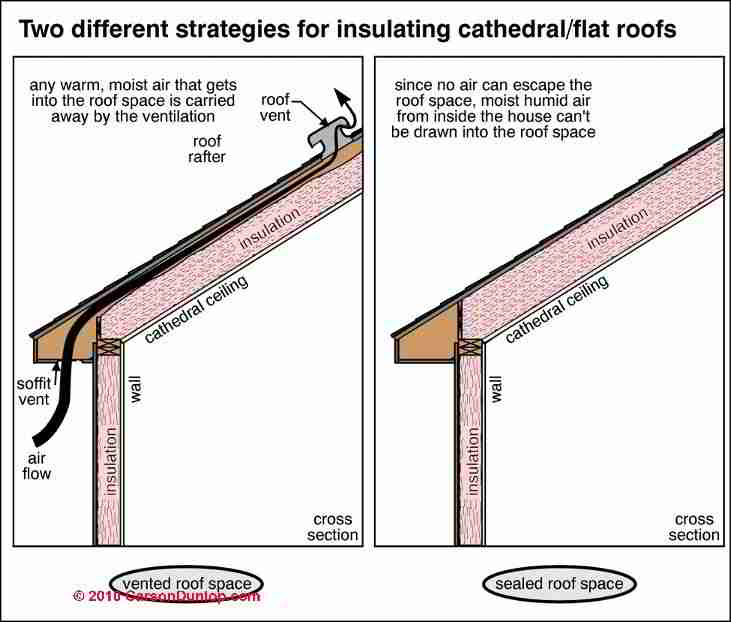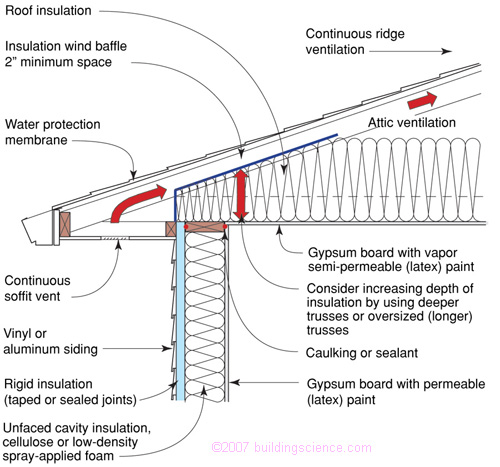The amount of space you devote to intake must be equal to the amount you allow for exhaust and these must be calculated according to the size of your attic and slope of your roof.
Roof attic vent spacing.
Ventilation can be accomplished using various products and techniques.
What does the code require.
As a general rule your roof needs 1 square foot of vent area for every 150 square feet of attic space.
Typically building codes include minimum attic space ventilation requirements as well as the roofing industry weighing in on practical guidelines.
According to the national roofing contractors association nrca a power vent with an airflow rate of 1 0 cubic foot per minute per square foot of attic space measured at the attic floor is generally considered to be equivalent to a 1 150 ventilation ratio.
They should be divided equally between inlet and outlet vents and they can be used in any combination that will work with your roof s design.
Before we explore how to ventilate an attic space it is prudent to understand how much ventilation is needed.
You can calculate attic ventilation requirements by determining the square footage of your attic floor its width times its length and compare that to the total required net free area nfa.
The key to proper ventilation of your roof and attic is balance.
Proper attic area ventilation is an important performance consideration for a home or building with a steep slope roof.
Building codes vary.
In order to facilitate this exchange of warm and cool air the general rule of thumb suggests installing at least 1 sq.
Of vent for every 300 sq.
Ventilation of attic spaces is required by most building codes as well as by roofing material manufacturers and the national roofing contractors association nrca.
Poor ventilation practices under the roof deck can lead to excessive energy loss ice dams mold and even rot.










